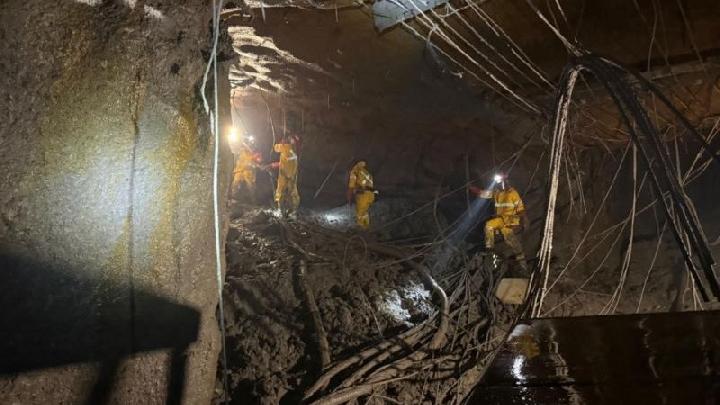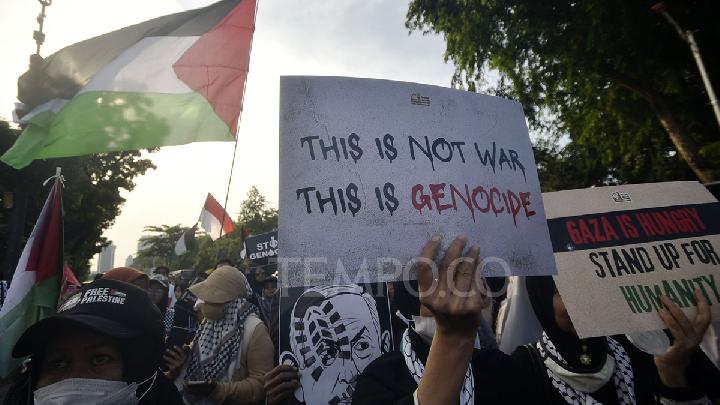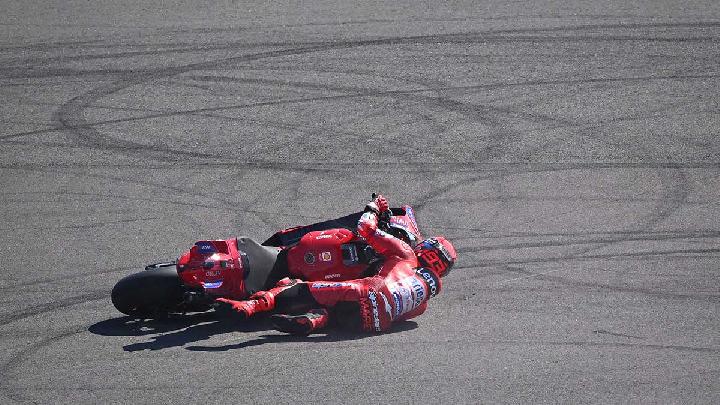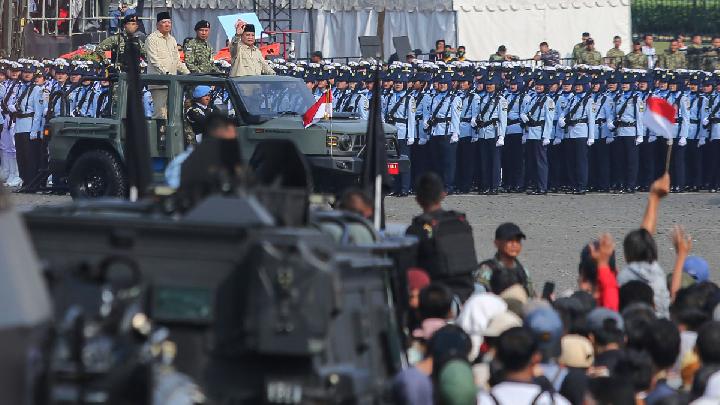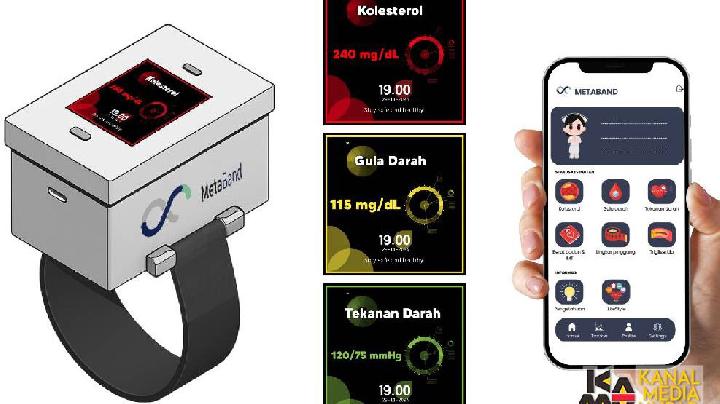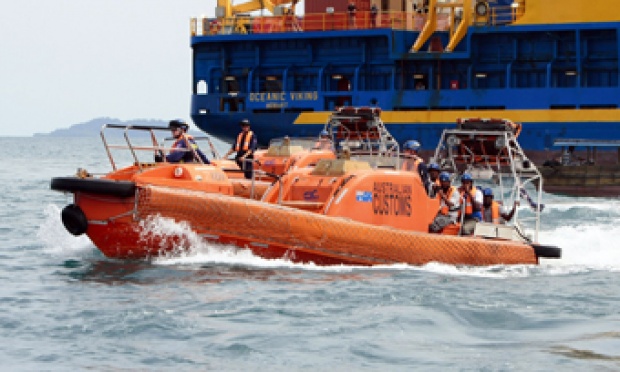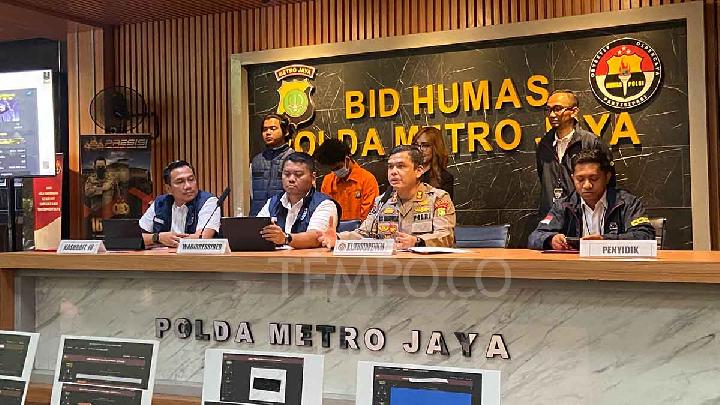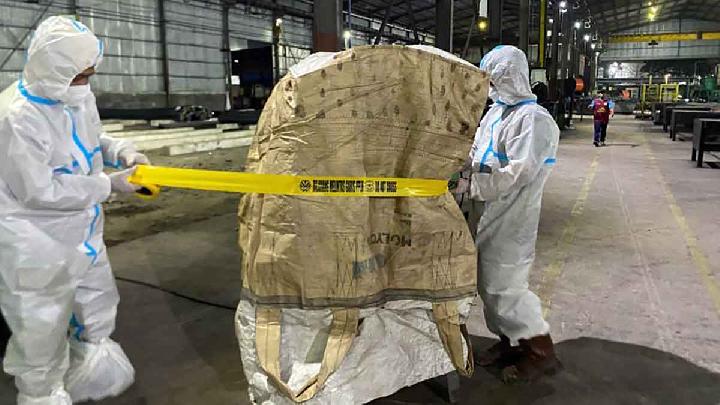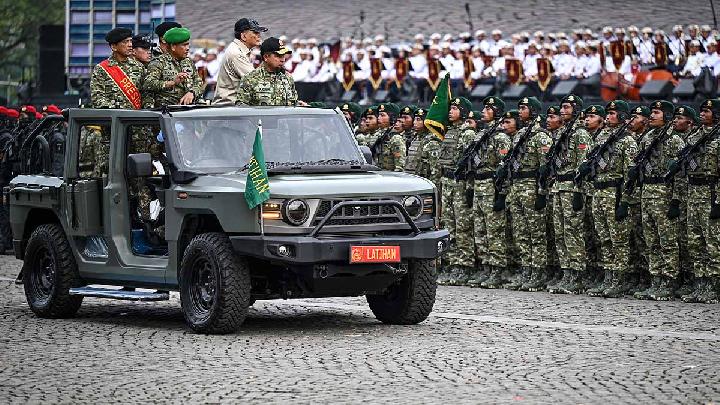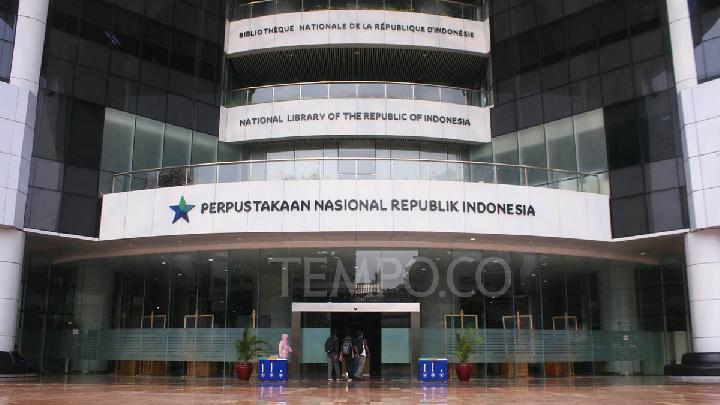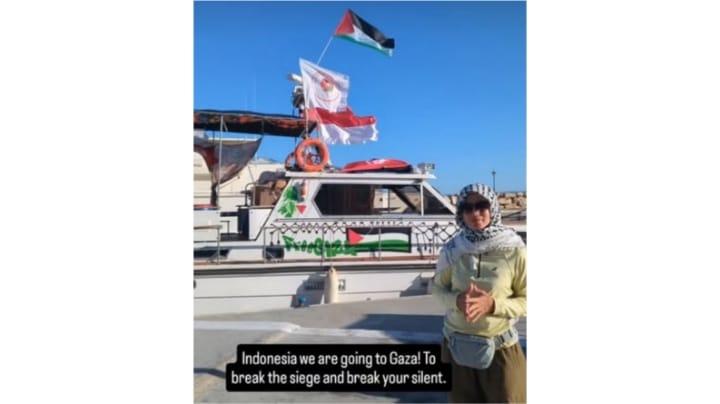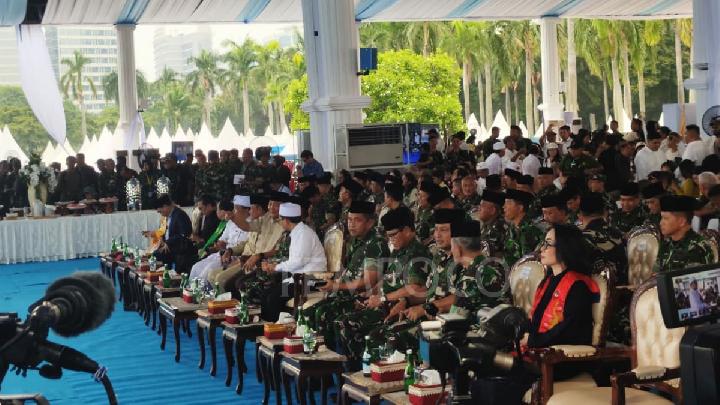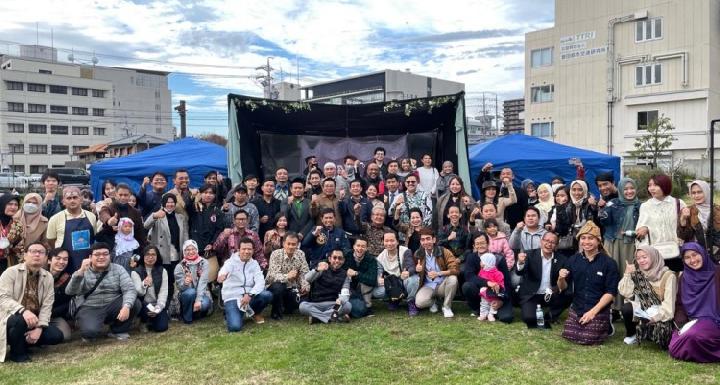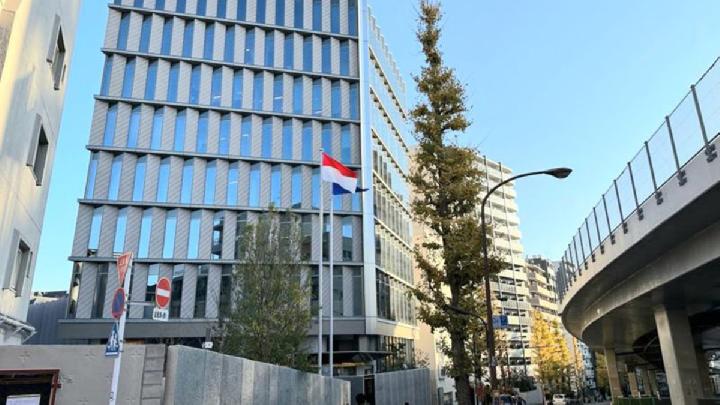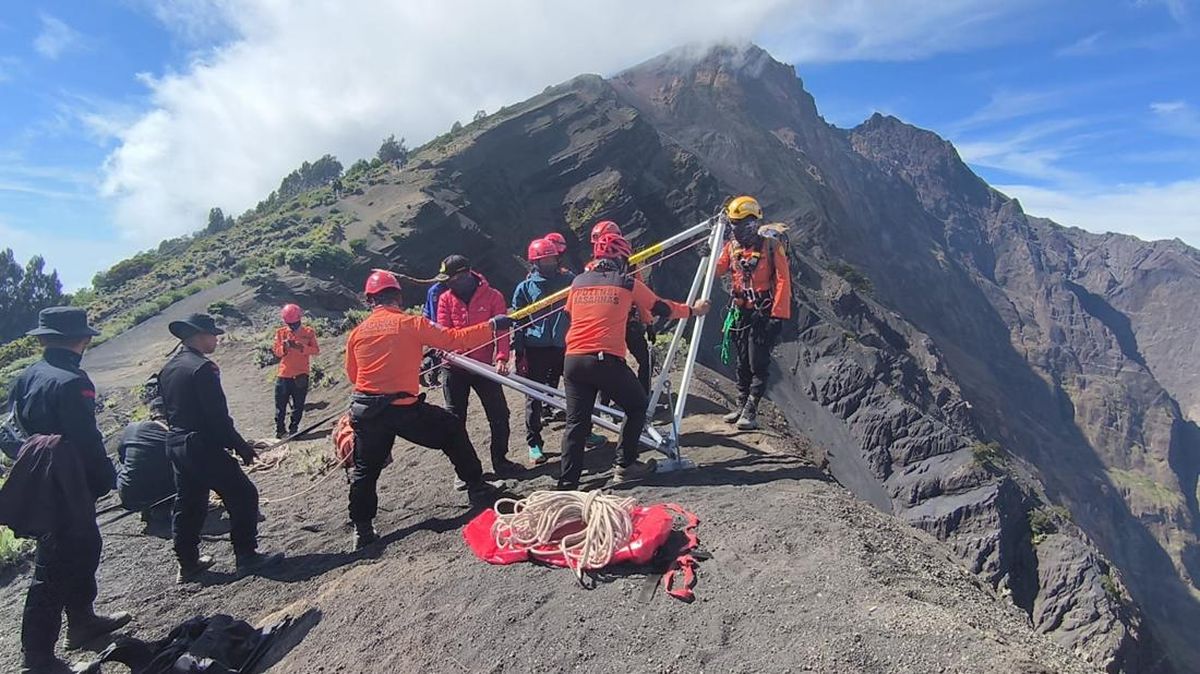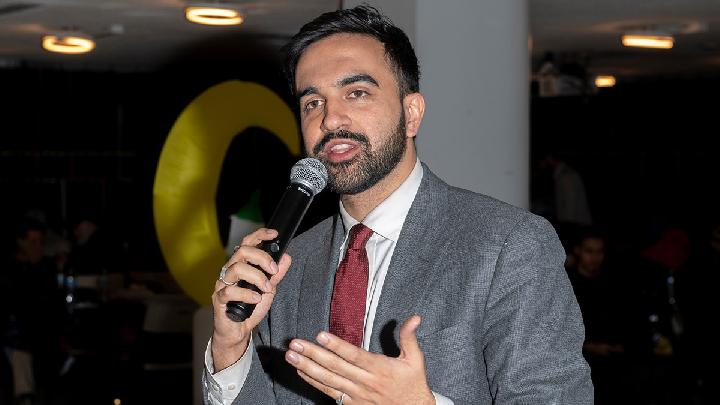TEMPO.CO, Gurugram, India - At the Information Management and Analysis Centre (IMAC) and Information Fusion Centre–Indian Ocean Region (IFC-IOR) located in Gurugram, India, the Indian Navy underscored India’s commitment to ensuring safety and stability across one of the world’s busiest and most complex maritime domains—the Indian Ocean Region (IOR).
The briefing session with 39 media correspondents from 17 friendly foreign countries, including Tempo from Indonesia, was hosted at the centres’ operations room located at the IMAC and IFC-IOR headquarters building in the Gurugram region during a ‘Familiarization Visit of Journalists to India’ on Friday, September 26, 2025.
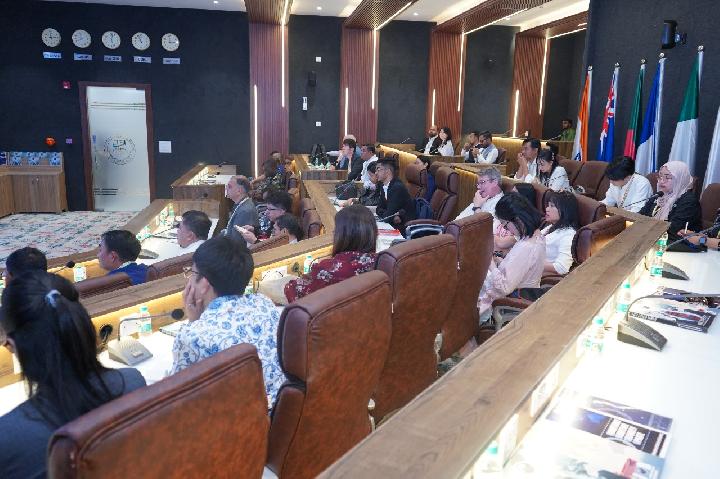 As many as 39 media correspondents from 17 Friendly Foreign Countries visited the Information Fusion Centre–Indian Ocean Region (IFC-IOR) during a Familiarization Visit of Journalists to India. The media correspondents were briefed on the challenges and complexities of maritime domain, maritime security situation and info sharing mechanisms, September 26, 2025. Doc. IFC-IOR
As many as 39 media correspondents from 17 Friendly Foreign Countries visited the Information Fusion Centre–Indian Ocean Region (IFC-IOR) during a Familiarization Visit of Journalists to India. The media correspondents were briefed on the challenges and complexities of maritime domain, maritime security situation and info sharing mechanisms, September 26, 2025. Doc. IFC-IOR
This briefing highlighted India’s evolving maritime security architecture and international partnerships aimed at addressing transnational threats such as piracy, trafficking, and illegal fishing.
The IMAC and IFC-IOR, both operating under the Indian Navy, form the backbone of the country’s maritime domain awareness efforts.
Speaking during the briefing, Lieutenant Commander Rohit Jadhav, Operations Officer at IFC-IOR, explained that the Indian Ocean is “a lifeline of global trade and energy security,” connecting 35 nations and supporting the livelihoods of over 2.6 billion people. The officer noted that nearly two-thirds of the world’s oil shipments and half of all container traffic pass through these waters, making the IOR central to global commerce and stability.
Given the strategic significance and security challenges of the region, IMAC was established to serve as a hub for information gathering and analysis from multiple national sources, creating a Common Operating Picture (COP) that helps authorities monitor thousands of vessels in real time. “The threat to maritime security is a real and present danger demanding constant vigilance,” Lt. Cmdr. Jadhav said, recalling the lessons learned from the 1993 Mumbai blasts and 2008 Mumbai terror attacks, which underscored the vulnerabilities of India’s sea routes.
Formally sanctioned in 2012 and operational since 2014, IMAC integrates inputs from coastal radars, the National Automatic Identification System (NAIS), long-range tracking systems, and satellite-based sensors. The network’s data, transmitted via secure optical fibre and satellite links, helps coordinate responses to suspicious activities and maritime emergencies across India’s vast coastline.
Lt. Cmdr. Jadhav outlined how India’s information-sharing network has expanded internationally. Established in December 2018 and formally recognized by the International Maritime Organization (IMO) in 2019, the IFC-IOR serves as a regional hub for collaborative maritime security, promoting coordination among partner nations across the Indo-Pacific.
“We at IFC-IOR monitor, validate, and compile maritime security information,” Lt. Cmdr. Jadhav explained. “We analyze and share this with international partners and stakeholders, and undertake joint responses when necessary.”
The centre now hosts International Liaison Officers (ILOs) from 15 partner countries — each contributing regional expertise and operational coordination in real-world incidents.
Jadhav then cited several examples, including the rescue of crew members from hijacked and distressed vessels, such as the MV Ruin off Somalia and the MSC El Satri off the coast of India. “In one case, 35 perpetrators were apprehended, and 17 crew members were safely rescued,” he said. “These successful operations highlight the importance of coordination and information exchange.”
He also detailed the centre’s response to the ongoing crisis in the Red Sea, where IFC-IOR has provided real-time assistance to merchant vessels. The Director General of Shipping, India, has issued circulars directing all Indian-flagged vessels — and those from IMO member states — to report suspicious activities and positional updates to IFC-IOR. “This ensures that information is shared swiftly to prevent escalation of threats,” he added.
Beyond operational coordination, the IFC-IOR plays a key role in capability building through training programs and workshops. The Maritime Information Sharing Workshop (MISW), its flagship annual event, has drawn participants from more than 26 countries. The centre has also conducted joint exercises with the United Nations Office on Drugs and Crime (UNODC) and led maritime data management courses in East Africa.
Addressing the media, Lt. Cmdr. Jadhav presented data on major maritime security trends from January to August 2025. The IFC-IOR recorded 164 piracy and armed robbery incidents, with most cases concentrated in Southeast Asia. Around 594 perpetrators were apprehended, while illegal, unreported, and unregulated (IUU) fishing remained a persistent issue involving over 700 vessels and 3,000 fishermen.
He also cited growing concerns about drug smuggling from the “Golden Triangle” and cyber threats targeting maritime infrastructure, including a ransomware attack on the Jawaharlal Nehru Port Trust (JNPT) in 2022. “Cybersecurity has become an integral part of maritime safety,” he said. “Incidents involving undersea cable damage — whether accidental or intentional — also demand greater monitoring.”
In response to a question about regional cooperation, Lt. Cmdr. Jadhav clarified that while IFC-IOR maintains extensive partnerships, it does not currently have operational linkages with Pakistan. “Our cooperation is focused on non-traditional security threats — piracy, smuggling, illegal fishing, and maritime incidents — not naval or military movements,” he said.
Concluding the briefing session, Lt. Cmdr. Jadhav emphasized the spirit of collaboration that underpins the centre’s mission. “Although we can do very little individually, together we can do so much,” he said. “Collaboration is the key for enhancing maritime safety and security in the Indian Ocean Region. IFC-IOR stands guided by India’s vision of MAHASAGAR — Mutual and Holistic Advancement for Security and Growth across the Region.”
Editor’s Choice: India Sets the Pace in Global Conservation via Archaeological Diplomacy
Click here to get the latest news updates from Tempo on Google News

